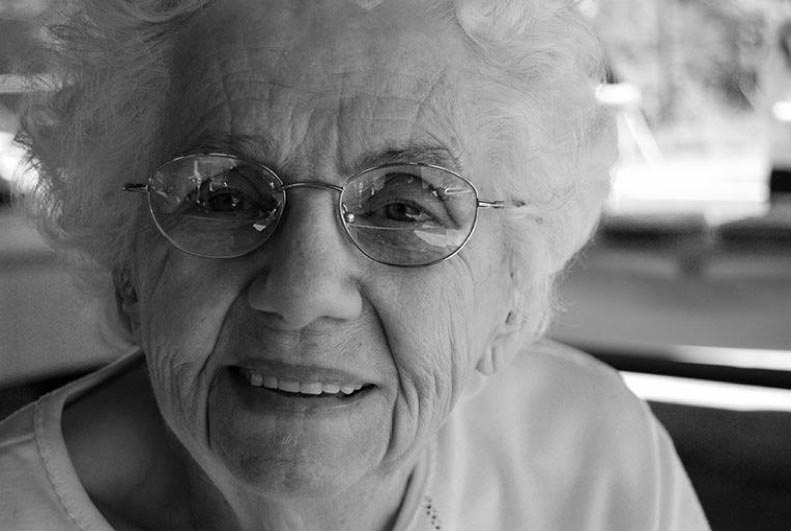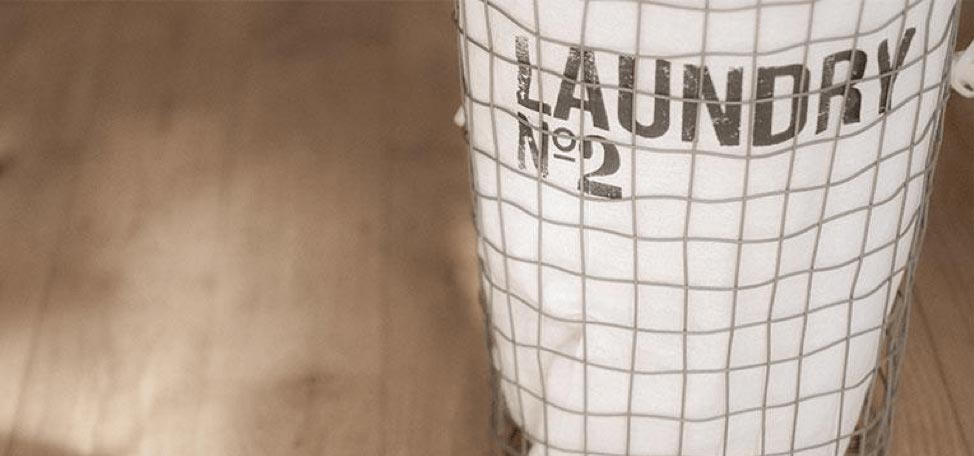You’ve done the interviews and chosen an in home Care Worker that seems right for your parent or spouse as they are ageing in place. Now it’s time for them to arrive for their first day on the job to provide in home care services.
It’s normal for everyone—you, your loved one and the in home Care Worker—to have butterflies and questions. To start everyone on the right foot, use advice from a professional Care Advisor from Home Care Assistance, Sarena Virani.
Setting the Stage For a New Care Worker
Virani suggests providing a clear picture for the person receiving in home care services. If your parent or spouse met the Care Worker during an interview, talk about what you liked. For people with memory issues, it’s helpful to have this conversation a few times. Bring the Care Worker alive as a person by describing their experience and personality they bring to their care for the elderly.
“Do as much as possible in the days or weeks before the in home Care Worker arrives. It’s so important to discuss the new Care Worker, in home care goals and expectations with your loved one as soon as possible. Share details like the Care Worker’s name, why they’re arriving and what they’ll be doing as part of their in home care services,” says Virani.
Introducing the New Care Worker
If the new in home Care Worker arrives alone on their first day, make them comfortable. Re-introduce the Care Worker to your family member – they should have met before this first day of aged care services.
If you hire an in home Care Worker through Home Care Assistance, the Care Worker will arrive with your dedicated and expert Client Care Manager. Virani says, “Having a Client Care Manager arrive for initial introductions to receiving home care services makes a big difference. You already have a relationship with the Client Care Manager. And, they are trained to make smooth introductions and review the in home care plan.”
This is your opportunity to add depth and nuance to your instructions. Your in home Care Worker will be paying close attention.
House Rules and Family Customs

The customs of your home are different than mine. Don’t be shy about stating your preferences for how you would like the in home care for the elderly to occur for your loved one.
Does your mother respond best to using a linen napkin when eating? Should the dog never be let out of the house? Your parent may be averse to bathing in the morning but prefers the evening. You may want the in home Care Worker to not change the channel on the television while your mum naps or you may feel that’s completely acceptable.
“Different families have different preferences. These small behaviours make a difference for each family. Feedback about the home care services is very important. This is often a trial and error situation that needs more than one day or even week to find an equilibrium,” says Virani. “We find that it takes about four weeks for everyone to feel comfortable and get into the right rhythm/schedule, especially when in home care is new to the family.”
Virani suggests making a list of the top five behaviours you want the in home Care Worker to use in your home as they support your loved one ageing in place. These are not related to in home health care and the client’s daily care for the elderly needs, but rather habits and customs. For example, not changing the TV channel when dad is watching his shows, or taking their shoes off when they enter the home.
“The list will grow over the first few weeks. An experienced in home Care Worker will expect those changes. When you have a new person in your home, they can’t anticipate everything that is important to you.
“Provide feedback and say your home care assistance expectations out loud. Our goal is to ensure that both our clients and Care Workers are happy and safe – timely feedback allows us to reach that goal for each family.” says Virani.
Elements of a Healthy and Appropriate Relationship
The relationship between an older person ageing in place and an in home Care Worker is a special one. It is also complex and not without challenges. An environment of trust, interest, and stimulation will move the relationship forward in positive ways.
Before we talk about how to foster a positive relationship with the home care agency, it is important to talk about the special nature of the in home Care Worker client relationship. Closeness is important, but with these cautions in mind:
- Personal health information should be private unless permission is given by the client or family
- Expressions of fondness should never be sexual in nature
- Maintain respect for privacy. This goes both ways. A Care Worker may not feel comfortable sharing private information whilst providing home care services and that should be respected. The same is true of your family member ageing in place.
Building a Bond with Your Care Worker

The level of bonding between someone ageing in place and the in home Care Worker depends on the person receiving the home care assistance. Virani reports that some clients resist any friendly relationship with a Care Worker. Other people crave a close personal relationship as part of their aged care services.
“In home Care Workers find common ground by talking about mutual interests. The Client Care Manager will identify common interests during the assessment stage and the interview. Mention your father’s love of basketball or fishing. This helps the in home Care Worker have topics to discuss with him throughout the day as they provide in home services,” Virani added.
Every Care Worker situation is different. The home care agency develops a care plan that will identify the tasks an in home Care Worker is to perform as part of their care for the elderly. A good home care agency should also focus on the personal nature of the relationship. A good relationship will ensure a long-lasting and productive experience. This doesn’t happen magically!
As a family member, tell the in home Care Worker about specific activities your loved one enjoys now or has done in the past prior to ageing in place. Here are some possible activities to encourage bonding and improve a family member’s quality of life.
- Getting out of the house. This could be taking a drive, going out to lunch, a movie or to a club. I recently heard a story about a woman who has dementia but is an avid hiker. As part of her in home care services, her in home Care Worker takes her on hikes. Without someone with her, she would get lost and confused.
- Games. The choice of games depends on a person’s cognitive abilities. If someone has dementia, simple card games or puzzles may be more appropriate. For someone who only has physical problems, a higher level card games, board games or word games may be more appropriate. Consider doing the crossword puzzle in the paper together.
- Music. Music is increasingly recognised as an important way to reach people who have dementia. An in home Care Worker can ask your family member if they enjoy music and what kind they like. Some people like using headphones and others are fine with music played in their house during provision of aged care services.
- Talking. Some people don’t like to talk as much as others do. If someone is not a talker, it is important for the in home Care Worker not to force it! Others may find talking comforting and stimulating. Being prepared with ideas can help. Other family members can help a Care Worker come up with topics of interest to raise as part of their in home care services.
- Spending time in nature. Getting a safe amount of sun when possible, is healthy. Being in nature has been shown to improve mood. Many people enjoy being in gardens or yards, or perhaps going to a nearby park. Even 15 minutes a day, weather permitting, can have a positive psychological impact on a person ageing in place.
Tips for Communicating with Your Care Worker

Good, clear communication is at the heart of any good relationship. This is no different with a home care agency and in home Care Worker. The question is how, when, and with whom this occurs. As a family member of someone receiving care for the elderly, it is tempting to “manage” this situation. Here are some tips to help both in home Care Worker and client feel more comfortable with one another, which can increase the chances of bonding.
- As you and the home care agency identify in home Care Worker tasks, make sure you paint a larger picture of your loved one. This means communicating who this person is, what they did in the past, what they like and don’t like. When a Care Worker first meets your loved one, the person they see is often a different version of who the person has been their entire life. The client may have physical or memory problems. It can be hard to envision that this person was once vital with a full and rich life prior to needing aged care services.
- Encourage your family member to talk about their needs, likes and dislikes.
- Request that the in home Care Worker also make suggestions for activities. These suggestions can go to the home care agency supervisor or to the family member setting up home care services. Often, a Care Worker can come up with good ideas about activities after observing the situation.
- Be flexible in your approach. Things rarely stay the same. Your loved one may change and in home Care Workers can change as well. It is almost impossible to predict how and whether or not two people will connect as part of the home care services experience. Sometimes, the Care Worker you think least likely to do well with your family member turns out to be the star!
Any valued relationship takes effort. Help to facilitate communication and connection by following these tips. You and your family member ageing in place will be happier and healthier as a result.
What Activities Are Best for the First Day?

Experienced in home Care Workers arrive prepared to perform everything written in the care plan.
The in home care manager will ask your preference – to start slow or dive in. There is no reason to limit or restrict home care services activity on your first day with the new Care Worker.
You may want your in home Care Worker to start with a task that is not intimate personal care. For instance, the Care Worker can help in the kitchen, prepare a meal, or do the laundry. This is less personal than helping a person get dressed. As the day progresses, the Care Worker will provide more direct home care services with their client ageing in place.
If your parent is accepting of care for the elderly, go ahead with your typical routine. Schedule medical appointments, haircuts or grocery shopping on the first day.
“It truly depends on the person receiving in home care assistance and their resistance to having a Care Worker,” says Virani.
In home Care Workers Bring Meals
Depending on the family’s preference, Care Workers may eat with the client to provide some company or eat on their own.
“In home Care Workers generally bring their own meals. Some families prefer to provide a meal for the in home Care Worker. Breaking bread together is a way to bond with the in home Care Worker but it is not a necessary part of in home care services,” says Virani.
End the Day With Constructive Feedback
Virani stresses the importance of providing feedback to in home Care Workers about a loved one’s first day. Families and people receiving in home care services should be vocal about what went right and what to change about the provided care for the elderly.
On the first day, provide your feedback to your home care agency’s care advisor. They can be a useful intermediary. They are very experienced at this type of communication,” says Virani.
“Too often a family might feel it’s impolite to talk about something they want changed. I understand. We’re not always accustomed to having people work in our home on such a personal level. Your in home Care Worker is a multifaceted, caring person. They want to provide the in home care assistance you want, in the way you want it. You are helping everyone by giving feedback.” says Virani.
Ream more: https://www.homecareassistance.com.au/care-services/
As a leading age care provider, Home Care Assistance offers tailored in-home care services for older Australians, enabling them to live happier and healthier lives in the comfort of their own homes.
We offer private and government subsidised Care Packages and have office locations that are a registered NDIS provider. Our Care Workers undergo extensive training in order to deliver unmatched in-home aged care services where people can continue ageing in place. We are proud ambassadors of the My Aged Care government funded aged care program, enabling Australians to successfully navigate the process and gain approval for in-home care support packages. Home Care Assistance offers hourly care, specialised care, Alzheimer’s and Dementia care, hospital to home care, and 24 hour in home care.













